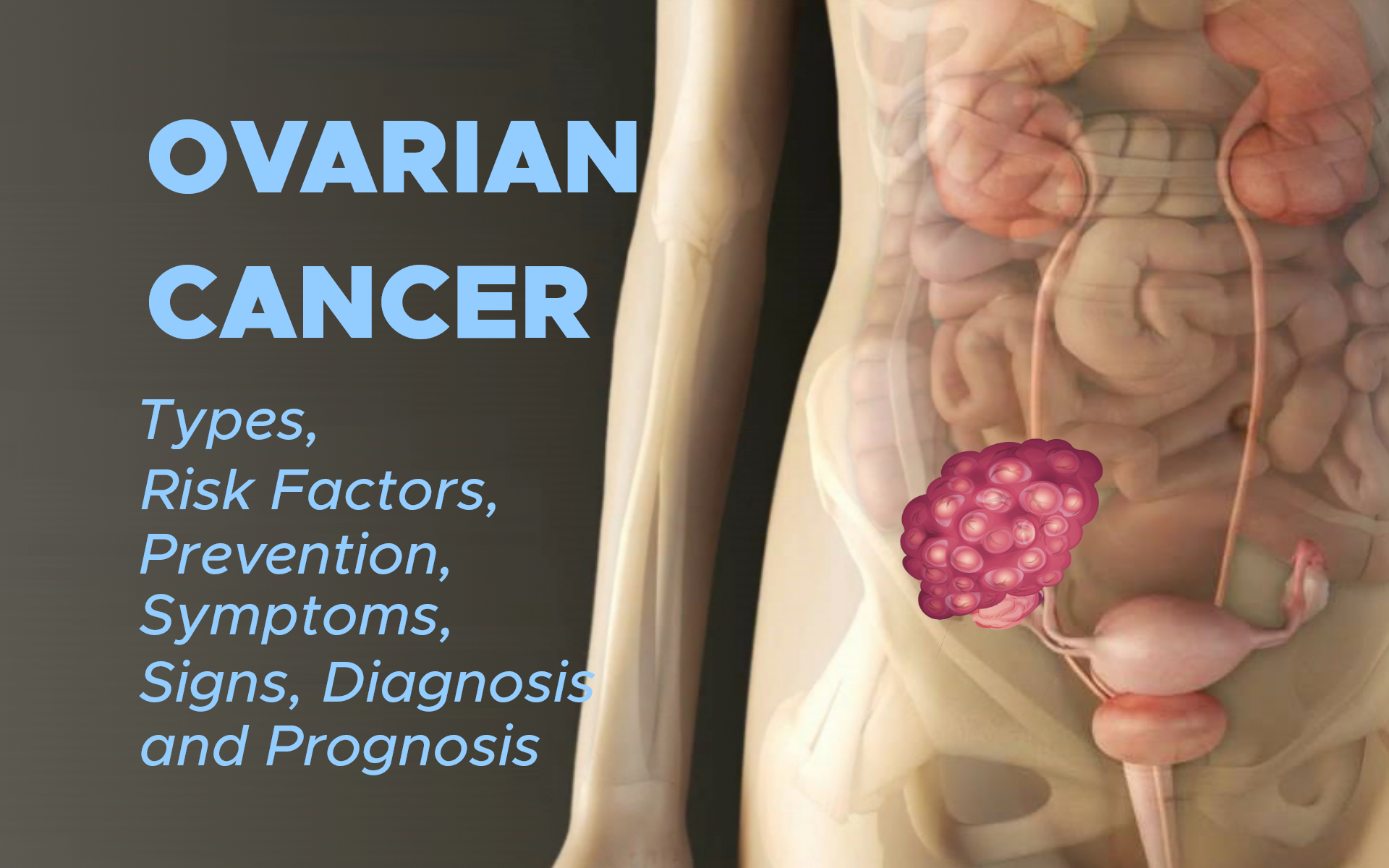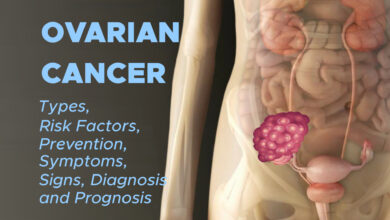
Ovarian Cancer: Genetics
Genetic mutations and genetic conditions that may raise a woman’s risk of developing ovarian cancer.
Genetic Mutations
About 10% to 20% of ovarian cancers occur because a genetic mutation, or change, has been passed down within a family.
This inherited risk is called a germline mutation. American Society of Clinical Oncology (ASCO) recommends that all women diagnosed with epithelial carcinoma, the most common type of ovarian cancer, receive genetic testing at the time of diagnosis for several cancer risk genes, including BRCA1 and BRCA2, RAD51, and PALB.
This testing should be done regardless of whether there is a family history of ovarian or breast cancer. People who do not have an inherited genetic mutation should also be tested for BRCA mutations in the tumor cells, called somatic testing, as treatments for ovarian cancer with these mutations are effective regardless of whether the mutation is inherited.
A mutation in the BRCA1 or BRCA2 gene is associated with an increased risk of developing these cancers. A woman with an “average risk” has about a 1% to 2% lifetime risk of developing ovarian cancer.
A woman with a:
- BRCA1 mutation has around a 40% lifetime risk
- BRCA2 mutation has about a 10% to 20% lifetime risk.
BRCA-related ovarian cancers can occur in women who do not have a family history of either breast or ovarian cancer.
About 40% of women with ovarian cancer who are found to have a BRCA mutation do not have a family history. First-degree and second-degree family members should also receive genetic testing if a person with ovarian cancer has a BRCA mutation because the risk of these cancers can be inherited.
A genetic counselor can help you and/or your family members understand the results of genetic testing. The results of this testing can help determine your treatment options.
Genetic Conditions
Several rare genetic conditions cause ovarian cancer. Some of the most common include:
-
- Lynch syndrome. Lynch syndrome, also known as hereditary non-polyposis colorectal cancer, increases a woman’s risk of ovarian cancer and uterine cancer. It is caused by mutations in several different genes. Lynch syndrome also increases the risk of colorectal cancer and several other cancers.
- Peutz-Jeghers syndrome (PJS). PJS is caused by a specific genetic mutation. The syndrome is associated with multiple polyps in the digestive tract that become noncancerous tumors and with increased pigmentation (dark spots on the skin) on the face and hands. PJS raises the risk of ovarian cancer, breast cancer, colorectal cancer, cervical cancer, and several other types of cancer.
- Nevoid basal cell carcinoma syndrome (NBCCS). Women with NBCCS, also called Gorlin syndrome, have an increased risk of developing fibromas. Fibromas are benign fibrous tumors of the ovaries. There is a small risk that these fibromas could develop into a type of ovarian cancer called fibrosarcoma. People with NBCCS often have multiple basal cell skin cancers and jaw cysts and may develop medulloblastoma, a type of brain tumor, in childhood.
- Li-Fraumeni syndrome and ataxia-telangiectasia. Women with Li-Fraumeni syndrome or ataxia-telangiectasia may have a slightly increased risk of developing ovarian cancer.
- There may be other hereditary syndromes linked to these types of cancer, including small-cell carcinoma with an inherited SMARCA4 mutation and Sertoli-Leydig cell tumors with DICER1 syndrome. Research in this area is ongoing. Only genetic testing can determine whether a person has a genetic mutation. Most experts strongly recommend that people who are considering genetic testing first talk with a genetic counselor. This expert is specially trained and can explain the risks and benefits of genetic testing.
